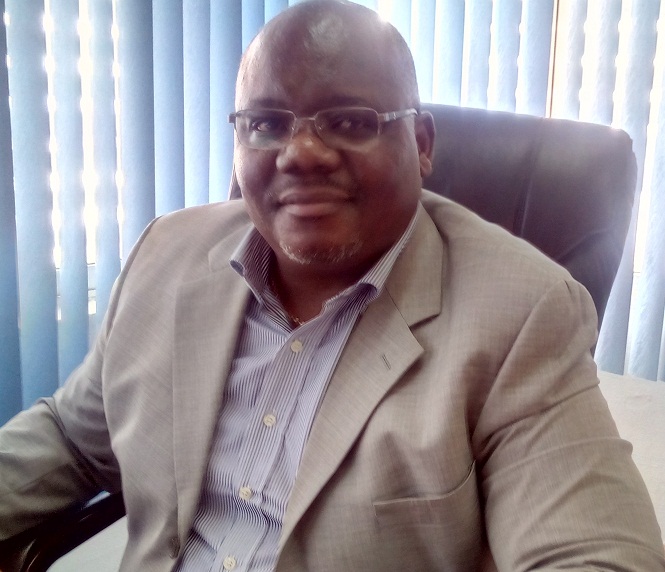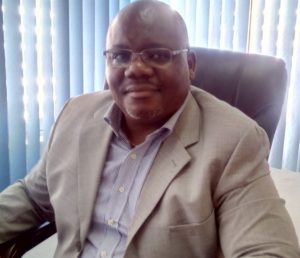MD/CEO of GTS-Infotel Nigeria, Dr. Ing. Pierre-F. Kamanou, a stakeholder in the Nigerian mobile VAS industry, speaks with Anthony Nwosu, IT Edge News, on why Nigerians should be looking at Longcodes as the pathway for mobile VAS.
We chatted about two years ago. Between then and now, what has changed in the mobile VAS market?
As of today, Mobile VAS Business are mainly restricted to shortcode services which were introduced in Nigeria in 2005 by MNOs for the provision of mobile content services branded by themselves such as CRBT. Moreover, there are mainly two types of shortcodes for the distribution of digital content delivered over SMS, WAP or Web channels, on revenue sharing basis: Toll-free SMS shortcodes applicable to auto-renewal Content Subscription services on Direct Operator Billing, and suitable for operator branded services. Premium SMS Shortcodes applicable to on-demand SMS billing services across all the MNOs, and suitable for third party branded services. The target market of Premium SMS Shortcodes is limited to very few big brands for promotional campaigns, and to very few content service providers. However, for many reasons and especially due to unfair revenue sharing applied by MNOs for third party branded services, the market of premium SMS shortcode is decreasing, while the market of SMS shortcode subscription services is increasing, representing more than 90% of the total revenue generated by shortcodes services.
Shortcodes are rising in demand while demand for longcode is shrinking?
No, there is an increasing demand for longcodes (at toll-free or normal rated tariff) from various types of businesses and for various types of purposes in the domains of cloud unified communication, multichannel call centres, mobile marketing. As of today, there is no such offer that suits the market needs. That is why, by anticipating this demand, my objective since the inception of GTS-Infotel in 2005 was to position the company as a mobile VAS Operator rather than a VAS Provider, and we spent 10 years to obtain from the regulator the “Special Numbering Services” licence, which is the first prerequisite for the introduction in the market of Infotel Number Services, as stated in my position paper dated in 2007.
What is so unique about the Infotel Number Services which you plan to offer in Nigeria? How can SMEs, the bedrock of any economy, leverage on the use of this?
GTS-Infotel is set to drive the nation’s Information Communication Technology to new heights with the introduction of Infotel number services (also called Virtual Mobile Numbers or longcodes) by bridging the gap between mobile networks and IT networks.
What’s the Infotel Numbers or Special Numbering System (SNS) all about?
The Infotel numbers are to enable any type and size of businesses to enjoy the full benefits of ICT services by deploying unified communication services and other value added services on the same IT networks used for their data and web services, on a unique virtual long number accessible to all mobile subscribers at toll-free or normal rated tariff. With the new SNS license, GTS-Infotel will become the first Mobile Virtual Number Operator (MVNO) in Nigeria, specializing in the provision of mobile virtual numbers (VAS numbers or longcodes) in the national numbering plan at toll-free or standard rated tariffs to third party VAS players in the ecosystem. This will enable enterprises of all types and sizes to easily develop and offer Voice/Video/Fax & SMS/USSD messaging services with an all-in-one InfotelTM number, accessible to the entire mobile subscriber base. To this effect, GTS-Infotel is currently negotiating new multi-channel interconnection agreements with each MNO for the deployment of its local carrier-grade VAS infrastructure network. The goal is to “keep local VAS traffic locally” and eliminate the need of Public Internet, in order to increase the efficiency and reliability of its VAS numbering offering and profitably for all stakeholders.
Congratulation on your award by ATCON; why were chosen for this particular award?
As a Cameroonian, and based on my pioneering role in the development of GSM networks in Africa since 1995, I decided to come to Nigeria in 2005 to contribute to the development of ICT in Nigeria because I believed Nigeria has all the attributes to be the centre of excellence of ICT in Africa.
Is this award based on your pioneer roles you played in VAS industry or because GTS is a big player in VAS space?
My pioneering role in telecom VAS has been to sensitize stakeholders for the introduction of a new type of player in the ICT ecosystem called Mobile VAS Operator, to be specialized in the provision of Mobile Virtual Numbers services by bridging the gap between Mobile Networks Operators and IP Networks Operators, for the full benefits of ICT services delivery to businesses. At the moment, GTS-Infotel has been granted last year a Special Numbering Services license by the NCC, after 10 years from the first application. Now, we do hope that without further delay, NCC would assign the required number ranges, so that we can finalize interconnection agreements with each MNO for the final establishment of this new VAS Operator. GTS-Infotel Nigeria is the only licensed VAS Provider, appointed as a member of the Industry Working Group on Shortcodes regulation set up by the NCC in 2013.
The National Executive Council (NEC) of Association of Telecommunications Companies of Nigeria (ATCON), appointed the Founder/Managing Director of GTS-Infotel to serve in the capacity of Coordinator, Value Added Services Providers in the 2014 2016 National Executive Council of the association.
Finally, what will be your advice to the NCC as we look forward to the coming year?
We commend the NCC for implementing the liberalization policy of the federal government which gives special recognition to ICT as one of the sectors that have steadily contributed to the nation’s Gross Domestic Product. In spite of the tremendous growth of mobile subscribers base, the specific market of mobile VAS services branded by third party services providers, other than mobile operators, is not well structured for a sustainable development of this market segment, as it is still running under a ‘tolerance regime’
How can there be sustainable development of the Nigerian VAS market?
To engender sustainable development in the telecommunications VAS segment, the following two pre-requisites must be fulfilled: Allocation by NCC of special numbers range (shortcodes and longcodes) to “special numbering services” licencees acting as Mobile VAS Operators, and finally the establishment of interconnection services agreements between each mobile operator and Mobile VAS Operator for the operation of the special numbers. We are using this medium to call on the Nigerian Communications Commission (NCC) to speed up regulation procedures for accelerated operations among telecoms VAS players in the ICT industry.































